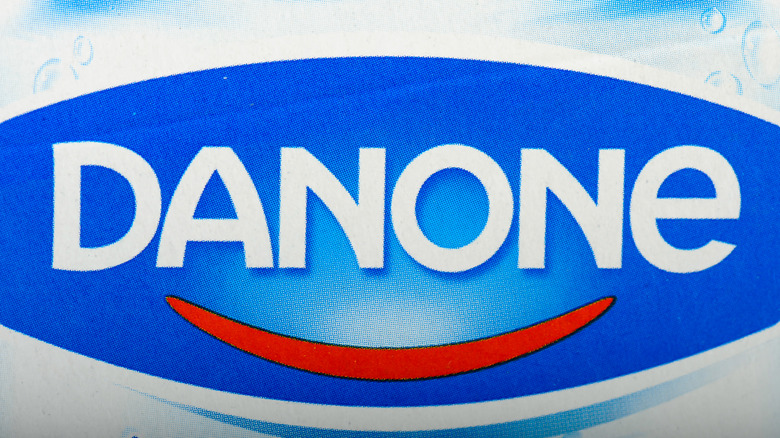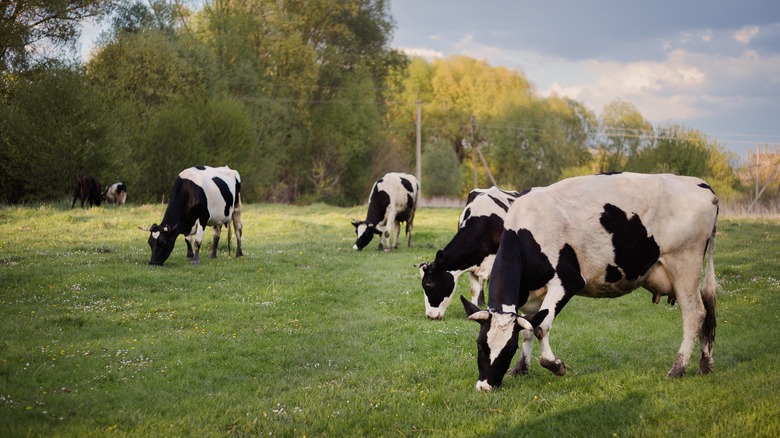Dairy Giant Danone Is Making Ambitious Moves To Cut Methane Emissions
According to the Climate and Clean Air Coalition (CCAC), methane is to blame for 40% of the global warming that has occurred since the Industrial Revolution. The potent greenhouse gas is up to 80 times more detrimental to the environment for 20 years after it is released than carbon dioxide due to its ability to prevent heat from leaving the atmosphere (per UN Environment Programme).
Because of its deleterious effects on the environment, methane is also harmful to human health. Half of the deaths from conditions like heart disease and respiratory diseases, as well as damaged airways and lung tissue, are attributed to air pollution directly related to methane. The Global Methane Assessment reported that a reduction of methane emissions could result in 225,000 fewer premature deaths and 775,000 fewer asthma-related hospital visits (per The Nicholas School of the Environment at Duke). Additionally, the United States Department of Agriculture reports that climate change could also be a catalyst for increased food insecurity around the globe, another threat to human health.
The CCAC reports that two-thirds of methane emissions are caused by human activity. Agriculture is the source of 42% of those emissions. While a number of food companies have called on the government to adopt actionable measures that will positively affect the environment, there is one particular company that has most recently stepped up to actively combat climate change — dairy industry giant, Danone.
How will Danone reduce methane emissions by 30%?
Between 2018 and 2020, Danone (also known as Dannon in the United States) reported that it was able to cut its methane emissions by approximately 14%. Now the company is making history as the first food company to create targeted goals for its methane emissions reduction with a goal of a 30% decrease by 2030. To achieve its goals, Danone has formulated a three-pronged approach.
First, Danone will continue to work with dairy farmers through Farming for Generations and Danone Ecosystem to improve and implement regenerative agricultural practices around the world. Additionally, Danone plans to announce four new programs targeting methane emission reduction, specifically in the United States, Europe, and Africa. The second part of Danone's plan includes collaboration with organizations like the Environmental Defense Fund (EDF), as well as governments and other like-minded organizations, with an eye on innovation in terms of financing models and the use of science to measure and support the efficacy of the efforts to reduce methane emission.
Lastly, Danone intends to work closely with governments to create and implement policies that prioritize the reduction of methane emissions. Currently, Danone collaborates with the U.S. Department of Agriculture as well as the Algerian government. The company also supports European Commission's Climate Neutral Farms (ClieNFarms) project. In addition to its ambitious goals for 2030, Danone has also expressed its commitment to complete carbon neutrality by 2050.

